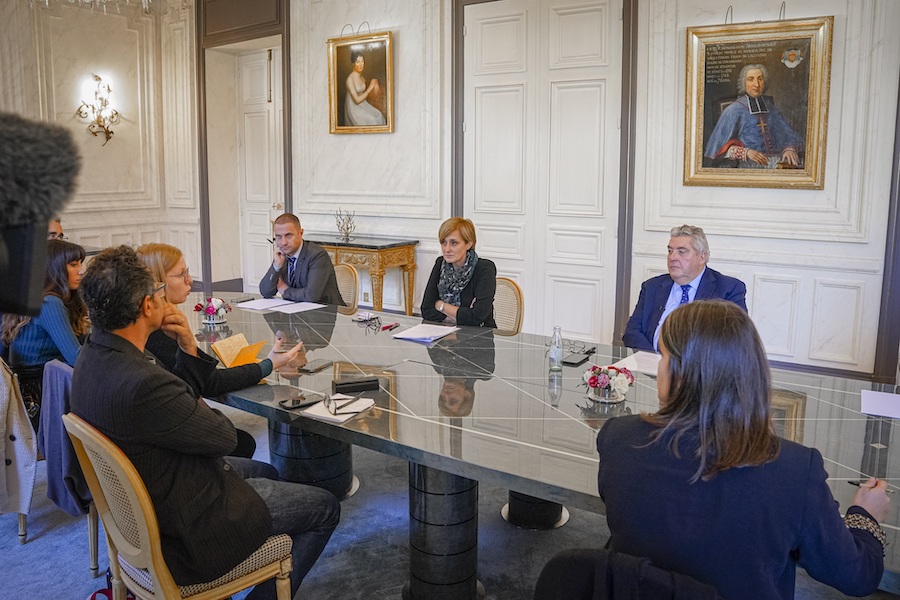With temperatures beginning to drop and electricity prices continuing to rise, the Monaco government has revealed a plan to cap energy prices for businesses and individuals.
The energy crisis is on the minds of many with cooler temperatures fast approaching, and worries about how to pay for the huge increases in cost have spurred the government to step in with a programme to cap energy prices.
Minister of State Pierre Dartout and Céline Caron-Dagioni, Government Advisor-Minister for Equipment, the Environment and Town Planning, explained the system at a press conference, which is based on variations in usage requirements and need.
A plan to protect residents, businesses and public finances
“Given the increase in energy prices, and in particular the price of electricity, this crisis forces us to take a number of measures,” said Dartout. “We are faced with two objectives that are not easy to reconcile: to protect residents and businesses by reducing the impact of their energy bills, and to spare public finances.”
The solution comes in the form of a variety pack of tariffs that differ between individuals and small businesses, the institutions that use the most energy, and the country’s largest consumers.
“For individuals and small businesses, the rate of increase in the electricity tariff will be the same as that of France, that is to say 15%,” said Dartout. He also explained the other two tariff rates: “The yellow tariff, concerning the most consuming institutions, will increase by 33%, while the green tariff, which includes large consumers such as the Société des Bains de Mer, the government administration and the Princess Grace Hospital Centre (CHPG) will take 45%.”
Additional costs are expected to be incurred from 1st January 2023. This is because the nation’s energy provider, SMEG, had purchased supplies lasting through the end of the year, but will need to adjust once that period is over and new, higher prices come into effect.
Without government intervention, which will absorb just under 30 million euros in 2023, individuals and small businesses would have seen their bills rise by 75%, medium-sized businesses by 65% and heavy consumers by 90%.
When asked why the 15% rate was not applied across the board, the minister’s sensible answer was: “It would be expensive for the state budget and we must have a system that should encourage companies and institutions, including us, to save money.”
Monaco’s government urges action to reduce energy usage
The government is taking its part seriously and has implemented actions to reduce consumption. Public buildings heating systems are set at 19°C, with a 2°C allowance for schools and the CHPG. Public buildings and bus shelters will not be lit past 10pm, and Christmas lights will not be on all night. Finally, the ice rink, a staple of the Monaco Christmas season, will not be installed this year in a huge disappointment to many.
Additionally, a poster campaign will soon be launched to raise awareness and show people how little things can make a big difference where energy consumption is concerned. Individuals and companies will be encouraged to turn off or put on standby appliances, turn off lights in a room where no one is, and buy low-energy household equipment.
The government believes that instilling good habits now will benefit all in future.
Céline Caron-Dagioni added, “Let’s not forget that in a Mediterranean country like ours, we often benefit from rather favourable conditions in winter. Habits must be taken now because it is in summer that the energy consumption peaks are strongest with air conditioning. Hence the importance of taking all the right steps now in order to be able to take on the new challenge that is in front of us, which will be that of next summer.”
Photo source: Stéphane Danna, Monaco Communications Department
